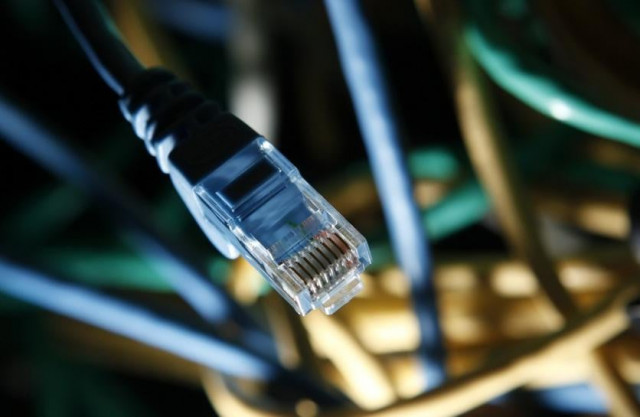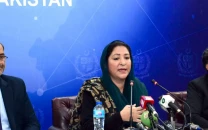Submarine cable fault slows internet across Pakistan
PTA says alternative channels for bandwidth arranged to provide uninterrupted internet services to users

A fault in one of the international submarine cables near Karachi on Tuesday slowed internet speed across the country.
However, alternate arrangements to provide uninterrupted internet services to the users have been made by relevant service providers by obtaining additional bandwidth and capacity to meet the requirements.
The Pakistan Telecommunication Authority (PTA) in a statement also shared on social media said it had "arranged for alternative channels for bandwidth" to compensate for the fault in the international submarine cable.
Press Release: A fault in one of the international submarine cables has been reported in the sea near Karachi affecting some internet traffic in peak hours.
— PTA (@PTAofficialpk) December 21, 2021
"With reference to AAE-1 (Asia-Africa-Europe-1) international submarine cable cut, we have arranged alternate channels for bandwidth to meet the requirement of internet usage in Pakistan," the company added.
"[The step has] resulted in improved customer experience, without any major impact on services.”
However, alternate arrangements to provide uninterrupted internet services to the users have been made by relevant service providers through obtaining additional bandwidth and capacity to meet the requirements.
— PTA (@PTAofficialpk) December 21, 2021
The PTA also assured that the bandwidth capacity would be further increased in the next few days to address the issue.
Work is under way to fix the fault which may take some time, PTA said, adding that it has directed operators to ensure uninterrupted internet services through alternate routes.
Work is underway to remove the fault which may take some time to rectify. Pakistan Telecommunication Authority (PTA) has directed operators to ensure uninterrupted #internet services through alternate routes.
— PTA (@PTAofficialpk) December 21, 2021
The AAE-1 is a 25,000km-log submarine communications cable system from South East Asia to Europe across Egypt, connecting Hong Kong, Vietnam, Cambodia, Malaysia, Singapore, Thailand, Myanmar, India, Pakistan, Oman, UAE, Qatar, Yemen, Djibouti, Saudi Arabia, Egypt, Greece, Italy, and France.
Also read: PTA says faulty submarine cable in UAE repaired
The AAE-1 cable system deploys 100 gigabytes per second transmission technology, with a minimum design capacity of 40 terabytes per second.
In October this year, the AAE-1 had reportedly been cut near Fujairah, United Arab Emirates, which caused internet services across the country to be disrupted with users reporting sluggish performance on their connections.
In a tweet, the PTA had announced that the faulty segment of the cable, which led to “degradation in services”, had been repaired and work was under way to make it fully functional.
The PTA, in conjunction with the International Submarine Consortium, had worked to restore services across the country.
Prior to that in February, the Trans World Associates (TWA) had communicated service degradation on the international connectivity towards Europe on SMW5 cable system due to subsea fault near Abu Talat, Egypt, affecting internet speed in Pakistan.
“While the work to remove the fault is continuing, the internet service providers (ISPs) are being shifted to the spare capacity maintained by the company,” a senior executive of the TWA had said.
The TWA and the Pakistan Telecommunication Company Ltd (PTCL) are the two licence holders for international landing stations of submarine cables.
While the TWA operates SMW-5 and TW-1, the PTCL submarine cable network comprises SMW-3, SMW-4, I-ME-WE and AAE-1.
The TWA systems cater for around 40% of internet traffic in Pakistan.
The fault occurred in the cable system coming from France and the TWA executive said ISPs were in the process of shifting the load to other submarine systems coming from Singapore.
Pakistan has been listed amongst the top ten countries with the biggest share of internet users in Asia 2020, according to a report published by Statista.


















COMMENTS
Comments are moderated and generally will be posted if they are on-topic and not abusive.
For more information, please see our Comments FAQ